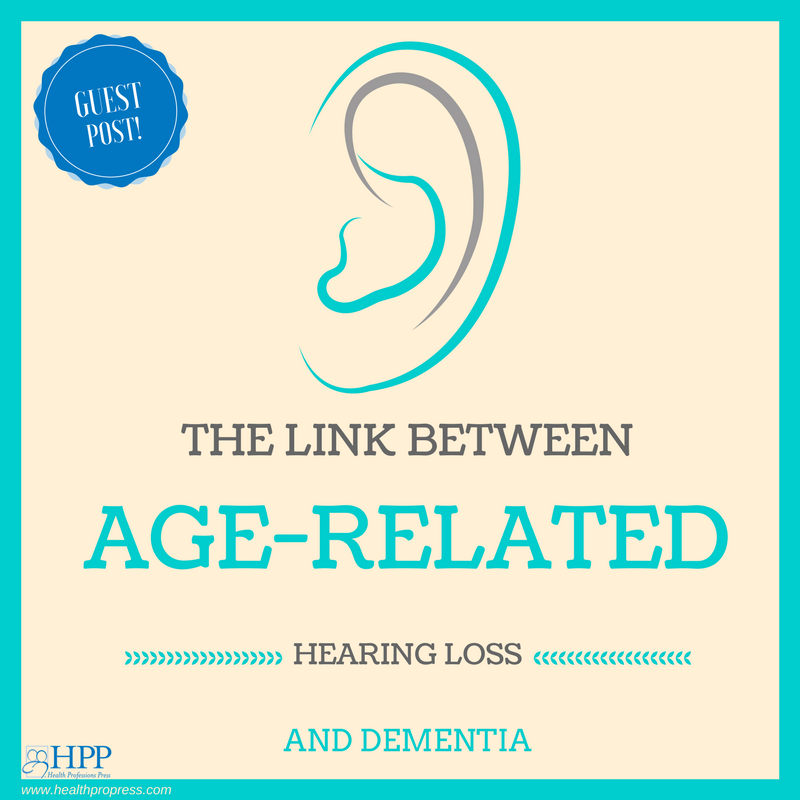
By Guest Blogger Joan McKechnie, BSc, Hons Audiology & Speech Pathology from www.hearingdirect.com.
The estimates for people who are hard of hearing and/or deaf across America vary from 22 million to 36 million. The figures are based on statistics from The National Center for Health Statistics (NCHS), which is under the Centers for Disease Control (CDC), and the U.S. Census Bureau. There is no statistic showing the cause for hearing loss amongst these groups, but based on other western counties, age related hearing loss, as well as noise induced hearing loss are likely to be the two main reasons.
In recent years, research by Johns Hopkins and Harvard universities have suggested a link between unmanaged hearing loss and the acceleration of cognitive decline. The widespread nature of hearing loss and links to progressive cognitive disorders such as dementia and Alzheimer’s disease makes it important to educate the care community on the topic.
How We Hear and What Goes Wrong?
To enjoy ‘sound’, several organs work hand in hand. Sound information must be captured and transmitted to the brain for processing. What we perceive as ‘sound’ is vibrations that travel through the air or another medium (water for example) in varying frequency, amplitude, and phase. These vibrations are transmitted through the ear to the inner ear (or cochlea) where they stimulate thousands of microscopic structures called hair cells. Once the relevant information is captured by the hair cells, the information is converted into electrical signals and travels via the hearing nerve to the brain for interpretation. When these hair cells’ functioning deteriorates, the ability to hear can be significantly affected. The body is unable to regenerate hair cells, though stem cells research is working to address this, and therefore at this time, any resultant hearing loss is permanent. The process of natural hair cell deterioration can start in a persons’ late 40s, though far more common to see in the over 65s.
Signs and Symptoms Of Age Related Hearing Loss
Natural decline in hearing ability usually occurs over a number of years, but the extent or severity of hearing loss varies from person to person; and other factors can aggravate the rate and degree of hearing loss. Concurrent noise induced hearing loss for example also contributes to hair cell decline and temporary causes such as wax blockage and use of certain medications need to be taken into account. Individuals of the same age and background can experience different symptoms, but the most commonly reported complaints include:
- Sounds are less clear
- Not being able to hear the telephone or door bell ringing when others can
- Other people may sound mumbled or slurred
- Inability to hear high-pitched sounds such as “s” and “th”
- Often having to ask people to repeat what they said
- Having the television or radio turned up higher than other family members find comfortable
- Feeling tired after participating conversations held within background noise
The Danger Of Unmanaged Hearing Loss
In the past it was usually assumed that not doing anything about a hearing loss unmanaged would have a negative impact on quality of life in terms of some social interactions and listening to music and television but that there wouldn’t be anything else more complicated to consider. We now know however, thanks to research by Johns Hopkins and Harvard, that unmanaged hearing loss can have far reaching effects on an individual’s mental health.
It is the relationship between reduced auditory stimuli and patterns of reclusiveness that is causing concern. The Johns Hopkins University study determined that socially isolated individuals are more likely to develop dementia. Out of 639 participants, researchers found that those with hearing loss at the beginning of the study were significantly more likely to develop dementia by the end. The risk of developing dementia over time was believed to increase by as much as fivefold. Lack of cognitive stimuli alongside social withdrawal due to difficulty hearing, were posited as defining characteristics in this profile. Whilst hearing loss may not be the cause of dementia there are certainly signs that, untreated, it can accelerate the rate of progression.
Managing Hearing Loss
One of the most basic and fundamental aspects of hearing rehabilitation starts with a hearing loss diagnosis. For those over the age of 65 routine hearing tests are recommended annually. The hearing test compares one’s hearing threshold level against a normative value and provides an insight into the type and degree of impairment. The most common way of managing a hearing loss, particularly for those with age-related hearing loss, is some form of amplification. Most hearing aids types can be programmed to address hearing deficits at specific frequencies and help to restore ‘normal’ loudness perception. Whilst hearing aids cannot ‘cure’ a hearing loss they can certainly help to mitigate further auditory deprivation and enable ongoing social interaction.
ABOUT THE GUEST BLOGGER:
 Joan McKechnie, BSc, Hons Audiology & Speech Pathology, works for UK based Hearing Direct. In addition to her role as a company audiologist, Joan helps maintain an information blog on hearing loss.
Joan McKechnie, BSc, Hons Audiology & Speech Pathology, works for UK based Hearing Direct. In addition to her role as a company audiologist, Joan helps maintain an information blog on hearing loss.

Wow, I had no idea that there was a connection between age related hearing loss and dementia. Lately my Grandma has been having to ask people to repeat themselves pretty often. She might be starting to lose her hearing. It might be time for her to get her hearing tested.
Well, I guess I’m a little bit relieved to hear this info. I’m glad that my dad’s hearing problems are actually hearing problems and not any form of dementia. I keep telling him to go to an audiologist to get his hearing tested. Thanks for this post and I really appreciate the info.